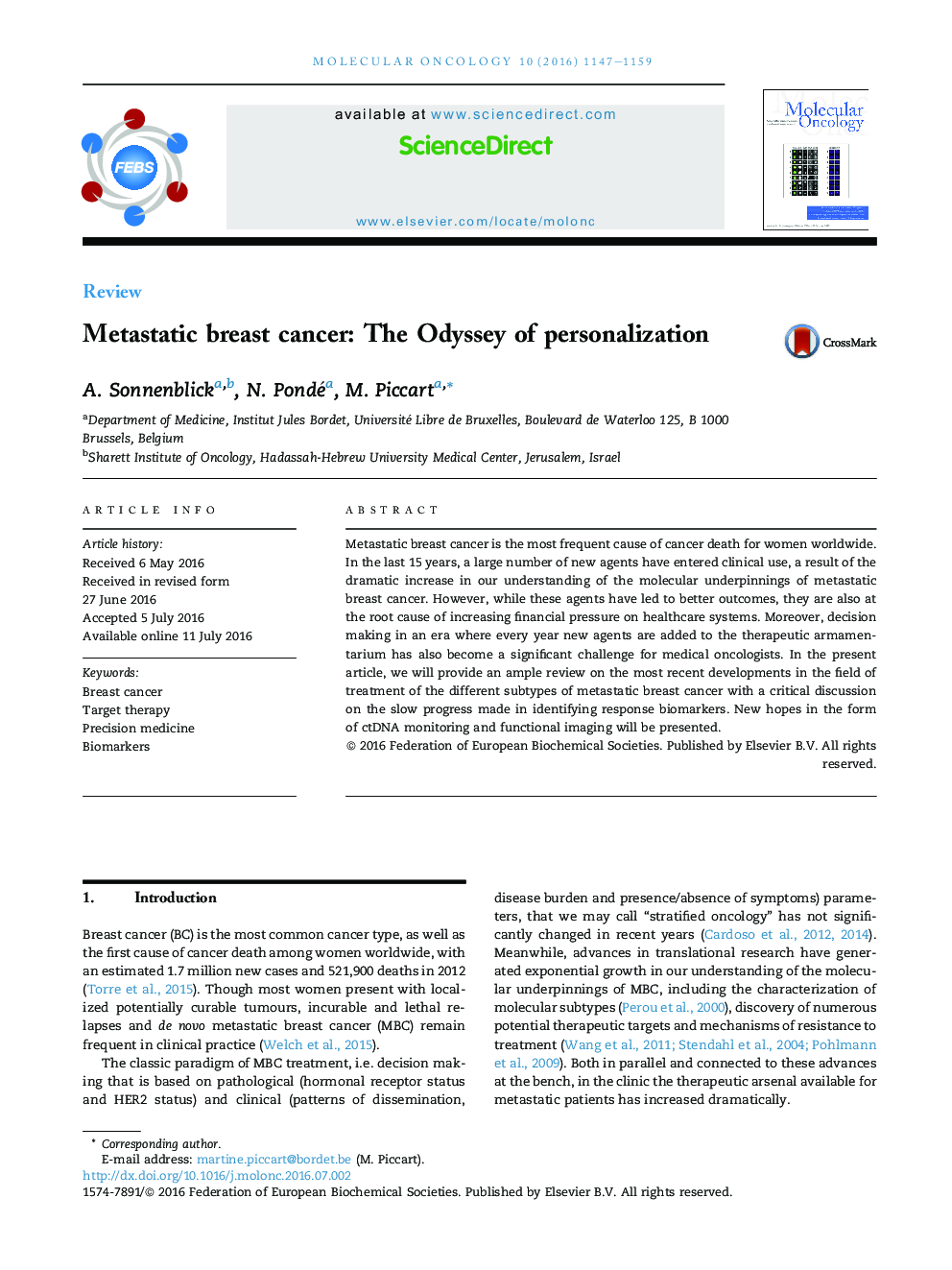| Article ID | Journal | Published Year | Pages | File Type |
|---|---|---|---|---|
| 5528627 | Molecular Oncology | 2016 | 13 Pages |
â¢Advances in understanding breast cancer biology generated new therapeutic agents.â¢Target therapy has changed the prognosis of certain breast cancer subtypes.â¢Target therapy has proved in some cases costly and toxic.â¢The development of predicative biomarkers can help to avoid unnecessary treatment.â¢Despite significant efforts the only validated biomarkers remain ER and HER2 status.
Metastatic breast cancer is the most frequent cause of cancer death for women worldwide. In the last 15 years, a large number of new agents have entered clinical use, a result of the dramatic increase in our understanding of the molecular underpinnings of metastatic breast cancer. However, while these agents have led to better outcomes, they are also at the root cause of increasing financial pressure on healthcare systems. Moreover, decision making in an era where every year new agents are added to the therapeutic armamentarium has also become a significant challenge for medical oncologists. In the present article, we will provide an ample review on the most recent developments in the field of treatment of the different subtypes of metastatic breast cancer with a critical discussion on the slow progress made in identifying response biomarkers. New hopes in the form of ctDNA monitoring and functional imaging will be presented.
